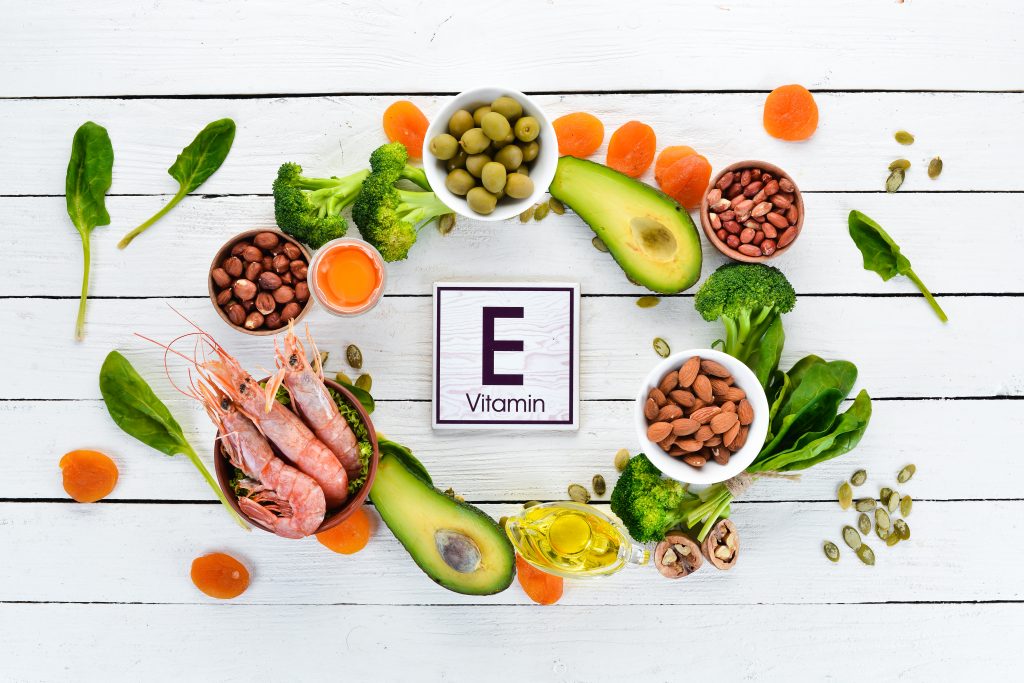
While diet and lifestyle choices greatly impact how your immune system responds to invading pathogens, did you know that genes play an important role in immune function as well?
Unique genetic factors may impact how well you process immune-supporting nutrients, manage stress and regulate inflammation. Individual variations in genes may influence how you respond to viral infections. By knowing your genetic variations, you can learn where you may be predisposed to good or poor immune-related traits.
Epigenetics is the study of changes in gene activity that alter the way DNA is expressed (becomes active), depending on environmental conditions. You may mitigate risks associated with specific genetic variations when you make diet and lifestyle choices based on your genetic makeup.
Nutrition and lifestyle choices play an essential role in immune function. Micronutrients such as vitamins A, B6, C, D and E, play important and complementary roles in supporting both the innate and adaptive immune systems. Deficiencies or insufficiencies in micronutrients negatively affect immune function and can decrease resistance to infections.
In this post, we will identify 7 genes that play an important role in immune function. These genes relate to the body’s ability to process immune-supporting nutrients, stress response, and inflammatory response.
Disclaimer: During the wide-spread COVID-19 pandemic, it is essential to remember that no supplement, diet, or lifestyle modification can protect you from COVID-19 other than social distancing measures and proper hygiene practices.
1. The CYP2R1 Gene and Vitamin D

Vitamin D is a steroid hormone made in the skin upon UVB exposure to the sun. Anything that blocks UVB radiation also blunts your ability to produce vitamin D. That includes clothing, sunscreen, melanin (which is responsible for darker skin colour), living in a northern latitude, and staying indoors.
Vitamin D plays a vital role in modulating the innate and adaptive immune systems; it inhibits B cell and T cell proliferation, resulting in a decreased production of inflammatory cells. A deficiency in vitamin D is associated with an increased risk of infections and autoimmunity (1).
Strong evidence suggests that vitamin D is protective against respiratory tract infections. Studies demonstrate that daily or weekly supplementation of vitamin D reduces the risk of acute respiratory infection by more than 50 percent in people with low baseline vitamin D levels (2).
CYP2R1 is a gene involved in converting vitamin D into its active form. Genetic variants in this gene are associated with an increased risk of vitamin D deficiency.
If you have genetic variations in this gene, ensure to obtain adequate sun exposure or supplementation of vitamin D. According to the Endocrine Society, blood levels of 25-hydroxyvitamin D below 20ng/ml is considered deficient and less than 30ng/ml is insufficient (3). We recommend supplementing with no more than 4000 IU of vitamin D per day for children nine years and older, adults, pregnant and lactating women (4).
2. The HP Gene and Vitamin C

Vitamin C is a potent antioxidant that supports your immune system. It improves your body’s ability to fight free radicals, modulates stress hormones and improves blood flow. Adequate levels of vitamin C can reduce the duration of a cold by 8-14% when taken daily (5).
Vitamin C can prevent or delay the development of certain cancers, cardiovascular disease, and other diseases in which oxidative stress plays a causal role. Oxidative stress results in damage to your cells caused by highly reactive molecules, called free radicals (6). Antioxidants like vitamin C protect your cells against free radical damage.
HP is a protein-coding gene responsible for regulating the production of free radicals. Genetic variants in this gene are associated with altered levels of vitamin C in the blood.
You may want to consider increasing foods such as oranges, grapefruits, berries, bell peppers, broccoli, and dark leafy greens if you have genetic variations in this gene. Eat fresh food, as vitamin C content decreases dramatically during storage and cooking.
Environmental factors such as physical stress and smoking may put you at a higher risk of vitamin C deficiency, increasing your susceptibility to oxidative stress and damage to your cells.
3. The BCMO1 Gene and Vitamin A

Vitamin A is a fat-soluble vitamin known for its anti-inflammatory properties and its vital role in enhancing immune function. Vitamin A is required to regulate the growth and production of T cells, a type of white blood cell that protects the body from pathogens (7).
BCMO1 is a gene involved in converting beta-carotene, a precursor of vitamin A, into its active form, retinal. Genetic variations in this gene are associated with a reduced ability to convert beta-carotene into retinal, resulting in an increased risk of vitamin A insufficiency.
Beta-carotene is a provitamin A carotenoid found in darkly coloured vegetables and fruits like sweet potato, carrots, yellow and orange bell peppers.
If you have variations in this gene, consider eating foods with preformed vitamin A found in animal products such as dairy, eggs, and fish. Foods rich in preformed vitamin A may provide better conversion rates to active retinal than foods with beta-carotene if you have variations in the BCMO1 gene.
4. The ALPL Gene and Vitamin B6

Vitamin B6, also known as pyridoxine, is an antioxidant that is one out of eight vitamins in the B vitamin group. Vitamin B6 is involved in immune function, promoting lymphocyte, interleukin-2 and hemoglobin production (8).
Vitamin B6 regulates the immune system and nervous system function, the production of chemical messengers that control anxiety and the metabolism of carbs, fats, and proteins.
The ALPL gene regulates the clearance of vitamin B6, which affects the concentration of vitamin B6 in your body. Genetic variations in this gene are associated with fast clearance of vitamin B6, leading to a 12-18% reduction in vitamin B6 concentrations.
If you have a variation in this gene, consider increasing foods rich in vitamin B6 such as spinach, bell peppers, banana, legumes, sweet potato, egg, fish, and sunflower seeds.
5. The APOA5 Gene and Vitamin E

Vitamin E is a fat-soluble vitamin rich in antioxidants and anti-inflammatory properties. It protects cells from oxidative damage caused by free radicals formed in the body during fat metabolism, exposure to environmental toxins, and ultraviolet light from the sun (9).
Vitamin E boosts the immune system to fight off invading bacterial and viral infections, playing a vital role in cell signalling, gene regulation and other metabolic processes. Consequently, vitamin E deficiency can lead to the destruction of blood cells and impaired immune function.
APOA5 is a gene involved in the regulation of vitamin E metabolism, controlling the level of alpha-tocopherol, an active form of vitamin E, in blood plasma. Genetic variations in this gene are associated with altered plasma vitamin E levels.
6. The SERPINA6 Gene and Cortisol
 Cortisol, also known as the stress hormone, is a steroid hormone that may suppress certain parts of the immune system. Research suggests that older adults are unable to stop cortisol production in response to stress. Chronically elevated levels of cortisol can lead to the immune system becoming “resistant,” leading to an accumulation of stress hormones, and increased production of inflammatory proteins that further compromise the immune response (10).
Cortisol, also known as the stress hormone, is a steroid hormone that may suppress certain parts of the immune system. Research suggests that older adults are unable to stop cortisol production in response to stress. Chronically elevated levels of cortisol can lead to the immune system becoming “resistant,” leading to an accumulation of stress hormones, and increased production of inflammatory proteins that further compromise the immune response (10).
The SERPINA6 gene encodes a protein called corticosteroid-binding globulin, this protein binds to our cortisol hormone and delivers it to other tissues when needed, responsible for regulating blood cortisol levels.
Variations in this gene are associated with irregular cortisol levels related to extreme fatigue, chronic pain, cardiovascular and psychiatric disease.
Lifestyle techniques to regulate cortisol include obtaining adequate sleep and stress reduction through calming activities such as yoga and meditation.
7. The IL6 Gene and Inflammatory Immune Response

Inflammation is a defence mechanism that is vital to health. It is the immune system’s response to harmful stimuli, such as pathogens and toxins. An inflammatory response is necessary to remove harmful stimuli and to initiate healing (11).
Interleukin cytokines are proteins made in response to pathogens and other antigens that regulate and mediate inflammatory and immune response (12).
The gene IL6 is a pro-inflammatory interleukin cytokine that plays a central role in the regulation of immune response. Variations in this gene are associated with an increased inflammatory response.
Other genes involved with the expression of pro-inflammatory cytokines include IL1A, IL1B and TNFA.
If you have several genetic variations related to inflammatory response, you may want to consider increasing immune boosters like vitamin C, vitamin D, and medicinal mushrooms such as reishi. Consume high anti-inflammatory foods like berries, turmeric, ginger, garlic and onion to offset inflammatory responses.
Key Takeaway
In this post, we introduced 7 genes that play an important role in immune function. We discuss immune function as it relates to micronutrient absorption, stress response and inflammatory response.
Emerging science illuminates the role of genetics in immune function and the ability to influence gene expression through environmental factors. Given this, you can leverage your genetic information to mitigate the risk of infections related to weaknesses in your genes. We empower you to take proactive steps toward optimum health and immunity.
Getting your DNA Tested for Optimum Immunity
Find out how to use DNA testing to create tailored health solutions to support your immune system. Our totalPower DNA kit tests for 240 genetic variations, including the 7 genes that play an important role in immune function discussed in this post. Download a sample totalPower report here.
Already have existing DNA data?
If you already have existing 23andMe data or other genetic data, upload your raw DNA data to unlock health insights from our totalPower Connect kit.

